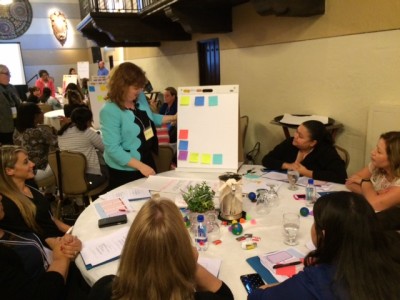Overview
In our Fundamentals of Quality Improvement course, participants will receive high-level training in quality and process improvement (PI) science, project management, systems change, using data for improvement, and change management. Participants will then apply these skills by completing a short, self-defined QI/PI project. Teams will be given the opportunity to reconvene in order to share lessons learned, engage with other clinic teams about their current and future QI/PI efforts, and learn how they can accelerate their improvement efforts.
A strong foundation in QI concepts, engaged many who had limited prior experience with QI, built energy and confidence around QI practice, and strengthened clinic relationships and communication.

Sample Projects
- Improving Case Management and Specialist Referral
- Decreasing patient wait times
- Decreasing no show rates
- Improve screening rates
Case Study
A BCCQ alumni clinic used strategies learned in our Fundamentals in Quality Improvement course to meaningfully engage key clinic staff who had not been involved in QI efforts previously – their case managers. The team used a collaborative approach to identify several barriers to effective, efficient specialist referral and selected three barriers to address through internal change processes. The team was able to implement straight-forward solutions to all three barriers. The team credited their success to the cooperation fostered between management, case managers, and front desk staff, and the high value placed on input of the front line staff. At the end of the program, the team planned to further address the identified barriers, identify work flow for referrals, write clear policies and procedures, streamline the forms used by case managers, and improve the screening procedure for determining eligibility requirements. They also hoped to spread the change processes to another clinic site.
Example Project Outcomes from Fundamentals in Quality Improvement Participants:
- Decrease no-show rates: Decreased no show rates from 22% to 10% by implementing reminder calls.
- Decrease cycle time: Decreased cycle times by 54% through improved communication and information exchange across clinic teams.
- Increase percentage of diabetic patients with up-to-date labs: Increased the percentage of diabetic patients with up-to-date labs by 22% through implementing reminder letters and dedicating staff time to do patient calls.
- Improve eligibility and enrollment process: Implemented a standardized eligibility matrix for enrolling patients in different programs which decreased cycle times and improved front-office communication.
Like This Program?
Like this program? Open to individuals or multi-disciplinary teams. Participants must of the support of a senior executive at their clinic to attend these workshops.
Sign up for more information